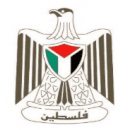National Surveillance Strategic Plan Consultant
State of Palestine
Ministry of Health
Projects Management Unit (PMU)
Health System Efficiency and Resiliency Project (HSERP)
Request for Expressions of Interest
(Consulting Services)
Name of Project: Health System Efficiency and Resilience Project (HSERP)
Assignment Title: Development of National Surveillance Strategic Plan for Communicable Diseases in Palestine
Reference No.: MOH-WB/HSERP-AF-CS4
The Ministry of Health has received financing from the World Bank toward the cost of the Additional Financing to the Health System Efficiency and Resilience Project (HSERP), and intends to apply part of the proceeds towards the cost of hiring a consultant to develop a National Surveillance Strategic Plan for Communicable Diseases in Palestine. The consultant will undertake the following tasks:
- Assessment of Current Communicable Diseases Surveillance System:
- Conduct a thorough assessment of the existing surveillance systems, including data collection, analysis, and reporting.
- Review the linkage of existing surveillance systems (e.g., communicable diseases, zoonotic diseases, non-communicable diseases, maternal and child health, etc.).
- Identify gaps, challenges, and areas for improvement in the current system.
- Development of the National Surveillance Strategic Plan:
- Collaborate with key stakeholders, including the Ministry of Health, WHO CO and EMRO and other relevant organizations, to develop a comprehensive communicable diseases NSSP. NSSP should encompass all key aspects such as early detection, reporting mechanisms, data collection and analysis, outbreak response, capacity-building for health workers, integration with existing health systems, alignment with international health regulations, and coordination with the One Health Strategy to address zoonotic and environmental health risks.
- Define strategic objectives, goals, and key performance indicators (KPIs) for the communicable diseases surveillance system.
- Develop a detailed implementation plan, including timelines, resource requirements, and roles and responsibilities.
- Establish a monitoring and evaluation (M&E) framework to track the progress and effectiveness of the NSSP.
- Develop tools and indicators for the continuous assessment of the surveillance system's performance.
- Establish a mechanism for the regular review and updating of the NSSP to ensure it remains relevant and effective.
- Capacity Building:
- Develop training materials, guidelines, of the NSSP. The training materials should be tailored for the Preventive Medicine Department and other relevant stakeholders, focusing on key areas such as disease surveillance, outbreak response, and data management. These materials will include presentation slides, facilitator guides, and participant handouts. Provide training and capacity-building sessions for MoH staff and other relevant stakeholders on the updated NSSP.
- Development of Standard operating procedures (SOPs):
- Develop specific standard operating procedures (SOPs) for the implementation of the NSSP. The suggested SOPs may include the following, which can be modified according to needs based on the assessment:
- Case Definition and Identification SOP
- Case Reporting SOP
- Data Collection, Management and Analysis SOP
- Health Information Products and Dissemination SOP
- Outbreak Verification and Investigation SOP
- Laboratory Coordination SOP
- Response Coordination SOP
- Training and Capacity-Building SOP
- Monitoring and Evaluation SOP
- Community Engagement SOP
- Integration with One Health Strategy SOP
The detailed Terms of Reference (TOR) can be can be obtained at the address given below.
The assignment is expected to be completed within twelve months from the start date.
The Ministry of Health now invites eligible individual consultants to indicate their interest in providing the Services. Interested Consultants should provide information demonstrating that they have the required qualifications and relevant experience to perform the Services.
جميع الحقوق محفوظة لموقع جوبس.
The consultant should have the following credentials and expertise:
- Advanced degree in Public Health, Epidemiology, Health Information Systems, or related field.
- At least 5 years of experience in public health surveillance, with a focus on strategic planning and system development.
- Strong understanding of the health sector in Palestine, including its challenges and opportunities.
- Excellent analytical, communication, facilitation, and report-writing skills in English and Arabic.
The attention of interested Consultants is drawn to Section III, paragraphs, 3.14, 3.16, and 3.17 of the World Bank’s “Procurement Regulations for IPF Borrowers” July 2016, revised November 2017 and August 2018 (“Procurement Regulations”), setting forth the World Bank’s policy on conflict of interest.
Further information can be obtained at the address below during office hours.
Expressions of interest must be delivered in a written form to the address below (by e-mail) by COB November 28th, 2024.
Ministry of Health
World Bank Projects Management Unit
E-mail: [email protected]









